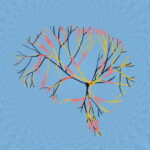While disrupted sleep cycles are not the cause of neurodegenerative conditions like Alzheimer’s disease, new research has focused on particular sleep patterns, in an effort to identify any such relationship.
According to a study, published in the journal Neurology, a team of researchers was determined on examining any relationship between sleep patterns, clinical depression, and Alzheimer’s.
Derived from numerous databases, researchers analyzed genetic studies that involved more than 20,000 patients with Alzheimer’s. That large group sample was then compared with a group of more than 40,000 people without the presence of neurodegeneration. Another group of more than 9,000 patients with clinical depression was compared to more than 9,000 additional people without clinical depression. Additionally, a group of more than 400,000 people with measurements of sleep-related characteristics were also evaluated.
Genetic data were analyzed using Mendelian randomization, a method able to examine and establish cause and effect.
From their findings, sleep-related characteristics were not thought to be a cause of Alzheimer’s disease. Moreover, no evidence was present of a cause and effect between clinical depression and the neurodegenerative disease.
But the findings did establish that people with twice the genetic risk of Alzheimer’s were slightly more likely to be morning people. The study relied mostly on data from participants of European ancestry and did not implement diverse ethnicity.
“We know that people with Alzheimer’s disease often report depression and various sleep problems, like insomnia,” said Abbas Dehghan, the study’s lead author.
“We wanted to find out if there are causal relationships between different sleep patterns and depression and Alzheimer’s.”


